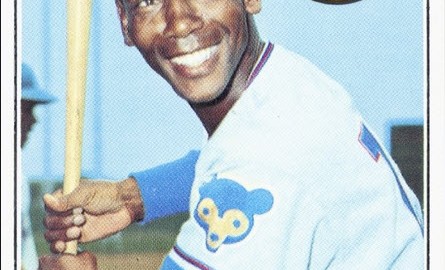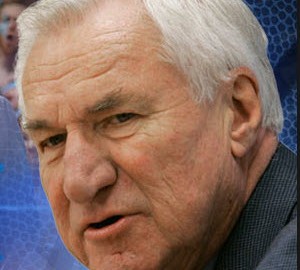Let’s Play Two Today! Leadership Lessons from Ernie Banks

 We lost a sports icon earlier this year in Ernie Banks.
We lost a sports icon earlier this year in Ernie Banks.
As I listened to the speakers at his funeral service, I reflected on an evening where I sat next to him at a banquet. Four things stood out in our conversation that night.
Optimism
Ernie was known for his perpetual optimism, both in baseball and in life. He was certainly well known for his “Let’s play two” quote in baseball and despite all the racism he endured early in his baseball travels, especially in hotels and restaurants, he never lost his optimism for people. He refused to let bitterness, hatred, and negativism in his life.
A number of people approached our table that night and Ernie received each of them with a smile and a kind word. He made them feel like he, Ernie Banks, was genuinely happy to meet them. Later in my life I saw another man meet my children in this very same manner. After a Bulls practice, Michael Jordan signed my children’s t-shirts and kidded with them as if he had known them all his life. Michael may have learned a great deal from observing Ernie and his optimism for his fellow man.
Graciousness
As a steady line of people came to meet him, Ernie never once lost his graciousness. He made time for everyone, answered all their questions, and was glad to do so. He not only did the above, but he was constantly handing out compliments to each person even though he did not know them! He made each person to whom he was talking feel as though he was the only person in the room.
Ernie’s graciousness was so great to see because I had just attended a basketball clinic and observed a nationally known coach who had no time for any of the coaches in attendance. He was both demeaning and obnoxious to his fellow coaches. I wish he had been sitting at our table that night and saw how a Hall of Famer treated people. It would have been a class he missed in college and one he badly needed!
Gratefulness
Ernie spoke only in glowing terms when he began talking about baseball. It was easy to tell how much he loved the game and how genuinely grateful he was for all the game brought to him and his family. It was very refreshing to listen to one of the greats of the game be so grateful.
Too often we hear today’s professional athletes, many of whom because of athletes like Ernie are now earning millions of dollars, complain about playing time, money, lack of respect, and the list goes on. Ernie would have none of that. He was too grateful for the life baseball gave him.
Humility
The primary trait that was so evident in Ernie was his humility. At his funeral service one of Ernie’s former Cub roommates said he was like a radio, i.e. he never stopped talking. He then added that although he was a non-stop talker, he never heard Ernie talk about himself. I would guess he simply let his body of work speak for itself.
I have always liked the maxim, “Don’t tell me; show me.” That is precisely what I have seen in the leaders whom I have respected the most. They roll up their sleeves and get the job done. They don’t talk about what they’re going to do. They simply do it. Then, when it’s accomplished, they don’t talk about their success because it’s never what “they” did. It is what “we” did. Truly great leaders develop the humility of Ernie Banks.
Optimism, graciousness, gratefulness, and humility were the four characteristics I observed in Ernie Banks that evening. Four qualities leaders may want to reflect on.


